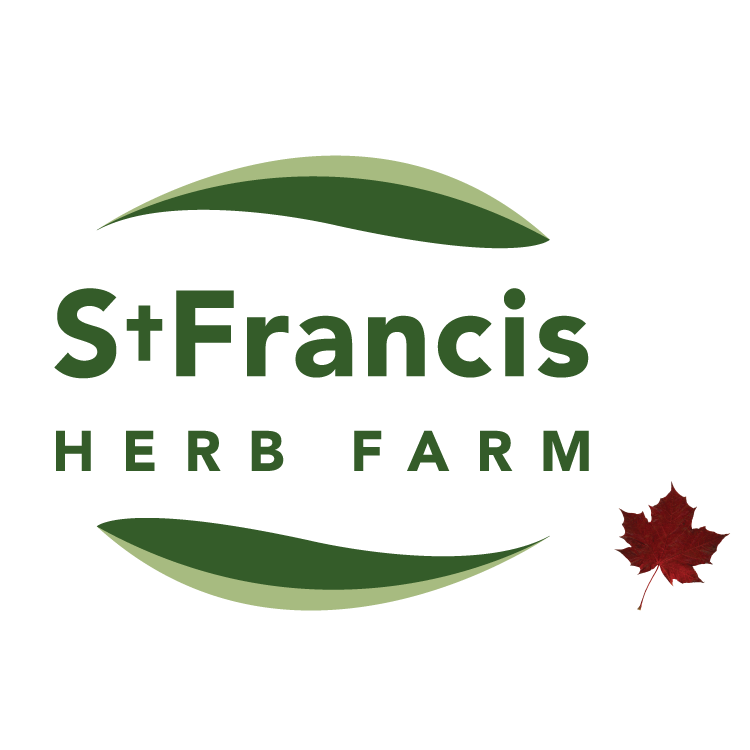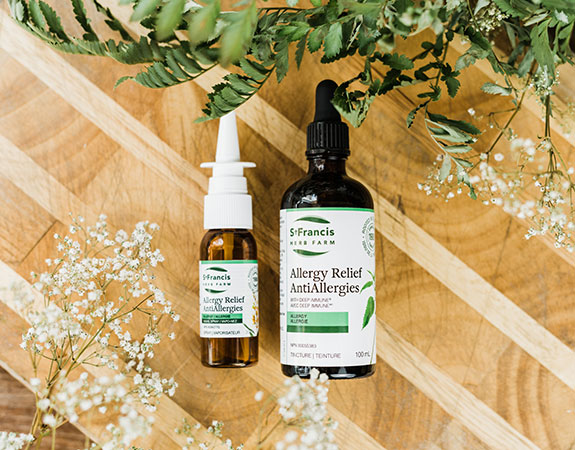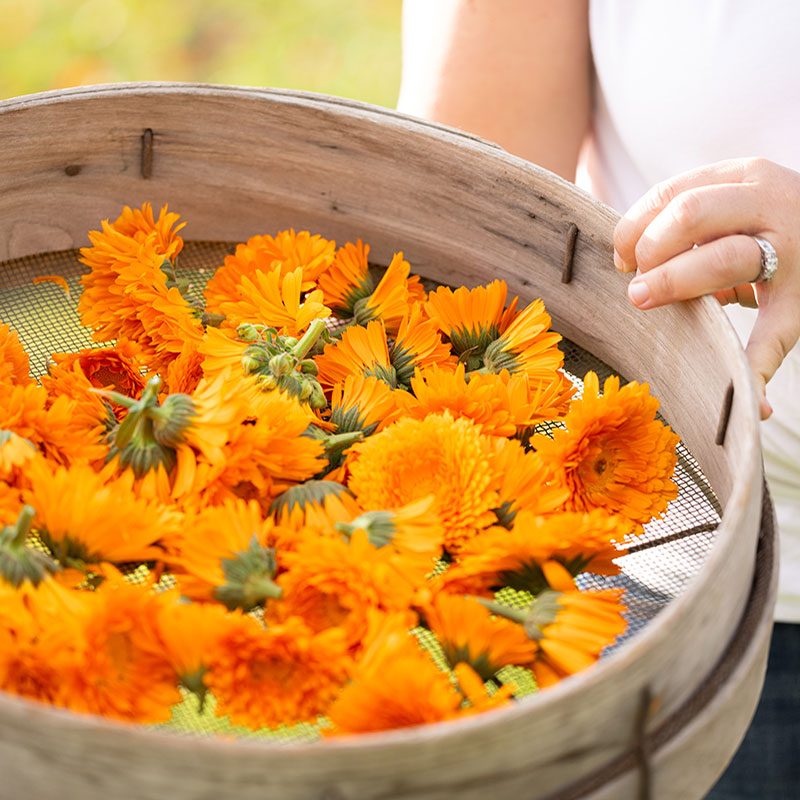Do you eat organic?
With benefits like no GMOs, pesticides, herbicides or toxins, it’s no wonder that Canadians spend an average of $6.9 Billion per year on organic grocery items. Compared to conventional produce, organic produce has more nutrients, fewer chemicals, and is better for human and environmental health.
Did you know that organic herbs offer the same benefits? Just like food plants, herbs grown using organic principles are of much higher quality than herbs from conventional farms.
Let’s take a look at why organic growing and production methods mean higher quality herbal supplements, and better health for your family.
Why Conventional Farms Grow Herbs with Chemicals
Herbs grown on conventional farms are liberally doused with chemical pesticides, herbicides, fungicides and fertilizers. Why use all these chemicals?
Conventional farms often grow huge fields of the same herb (monocultures). This is an incredibly unnatural growing environment for herbs, which depletes soil health and leaves herbs vulnerable to attack from insects, weeds and fungal diseases.
Artificial problems need artificial solutions. Growing herbs in such sterile environments only works by using toxic chemicals.
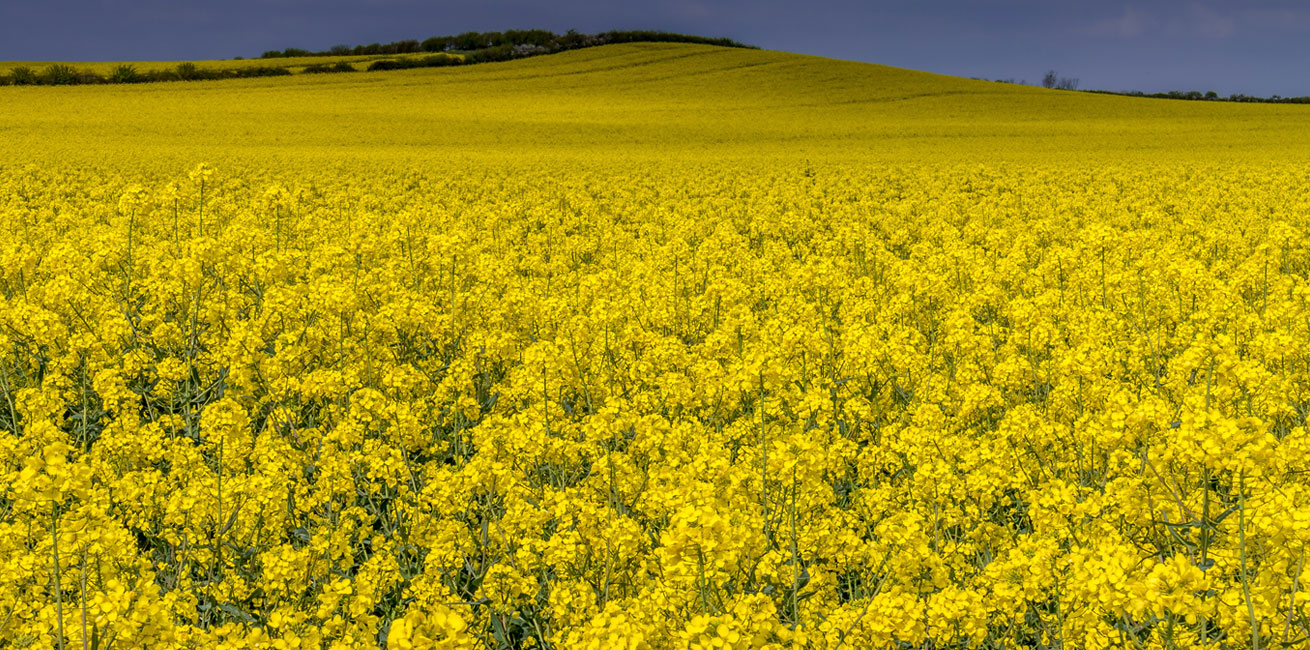
“Organic growing requires an attentive mindset.”
Paul Rivett-Carnac
5 Reasons Why Organic Farming Means High-Quality Herbs
What organic farming methods replace chemical pesticides, herbicides, fungicides and fertilizers?
Let’s take a look at 5 ways that organic methods contribute to high-quality, toxin-free herbs that are good for your family, and the environment.
#1: Organic Herbs are GMO-Free
Conventional farms have a darker side – these plants are often genetically-modified (GMOs). In GMO plants, genes from another species are inserted creating ‘Franken-plants’. The goal? Maximum plant yields and long shelf life. GMO tomatoes may contain genes from cold-water fish, to stay fresh during lengthy transport trips. ‘Roundup Ready’ seeds contain protection from herbicides, which would otherwise harm the plant. Some seeds are even engineered to produce toxic pesticides.
Organic standards forbid GMOs in seeds or any part of the growing process. To the contrary, organic farming often uses heirloom, ancient and native species.
“It's like you’re journeying with the plant - journeying with its own growth and its reaction to the environment around it.”
Paul Rivett-Carnac
#2: Organic Herb Farms are Diverse
Monoculture herb plantings make great one-stop shopping destinations for insects and fungi. Ravenous insects can set up shop in great numbers, and quickly devour entire fields.
Monocultures are not found in nature. In organic farms, several herbs may grow together in the same field. Different plants attract different insects – isn’t that a bad thing?
Not always – beneficial insects are an effective organic method of pest control. If you’ve ever used other plants to attract ladybugs to your garden to defeat an aphid infestation, you’ve tapped into the power of organic gardening to beat pests without using dangerous pesticides.
An herb that doesn’t have to constantly fend off pests is happier, healthier, and of higher quality. Herb diversity encourages diversity in the whole farm ecosystem, supporting a variety of pollinators and animals.
#3: Organic Farming Builds Soil Health
100 years – that’s how long it takes to form just one inch of soil. Our global food systems depend on a mere two inches of soil right beneath the surface. If the Earth was an apple, the soil would be the skin. When we realize that our entire existence is dependent on this thin layer of soil, we can no longer take soil health for granted.
Diverse soil organisms and beneficial fungi make for fertile, nutrient-rich soil. Healthy soil can retain enough water to survive a drought, and holds together well enough to avoid erosion. Organic farming doesn’t just avoid harming soil – it incorporates several practices that actively improve soil health.
“Herb quality depends on the health of the soil and the plants.”
Paul Rivett-Carnac
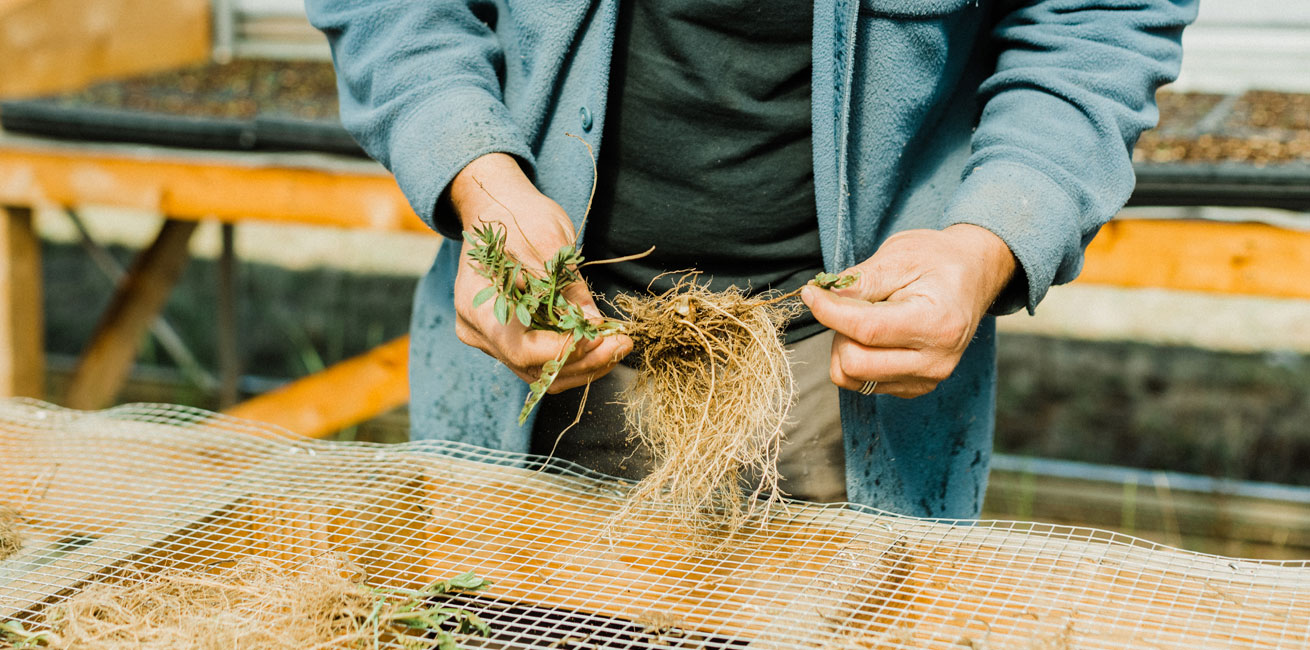
Crop Rotation
What happens when plants are grown in the same field, season after season? Such conventionally farmed soil is deprived of nutrients and good microbes that help plants fight off pests and disease. Chemical fertilizers are needed to inject nutrients back into the soil, and chemical pesticides and fungicides needed to deter attackers.
Different plants take different nutrients from the soil. Rotating the herbs grown in each field means higher microbe diversity, no nutrient depletion and no need for toxic fertilizers.
More nutrients are available to be taken up by herbs – which makes for high-quality herbal supplements.
Crop rotation also benefits the environment. Healthy organic soils are heavy enough to stay in the ground, and avoid eroding into waterways, or blowing away in dust storms. This keeps carbon in the ground, and out of the atmosphere, supporting climate change initiatives.
Cover Crops
Sometimes soil needs a break to rejuvenate. Instead of leaving a field bare, many organic farmers plant cover crops during this rest period to replenish the soil with nutrients. Plants that can take nutrients from the air and deposit them into the soil like Vetch and Sweet Clover are cover crop classics.
These crops are like placeholders, keeping the soil ‘warm’ until the next main crop is planted. Cover crops discourage pests and prevent weeds from taking hold. No need for toxic fertilizer, as soil is naturally replenished. A well-rested, nutrient-rich soil produces excellent quality herbs.
Cover crops encourage biodiversity in the farm ecosystem year-round and keep carbon in the ground to reduce greenhouse gas emissions.
#4: Organic Farming is Mindful Farming
St. Francis Herb Farm President Paul Rivett-Carnac notes that “Organic growing requires an attentive mindset. Attention to the soil, the farm, the environment, the local climate and the local environment. Herb quality depends on the health of the soil and the plants.”
Organic farmers need to get up close and personal with their plants, becoming familiar with the land, field layout, crop rotation and cover crop schedules. “That familiarity of being onsite and watching allows you to develop a baseline”, Paul continues. “So when things change, you can recognize it and do something about it. It is like you’re journeying with the plant – journeying with its own growth and its reaction to the environment around it.”
Paul applies this same attentiveness to organic herb suppliers. “To make sure we’re confident in the herb quality, we get herbs in as whole a form as possible. Some herbs are bulky and take up a lot of space. We could grind them up to make them more compact, but quality may suffer. We choose to work with organic growers to produce herbs in whole form. This allows us to really look at them, feel them, be attentive with all of our senses.”
Herbs that are well-cared for with love and attention thrive, producing herbal medicines of the highest quality.
“Our soil care plans incorporate local sources, reinforcing the holistic, biodiverse aspect of organic farming.”
Paul Rivett-Carnac
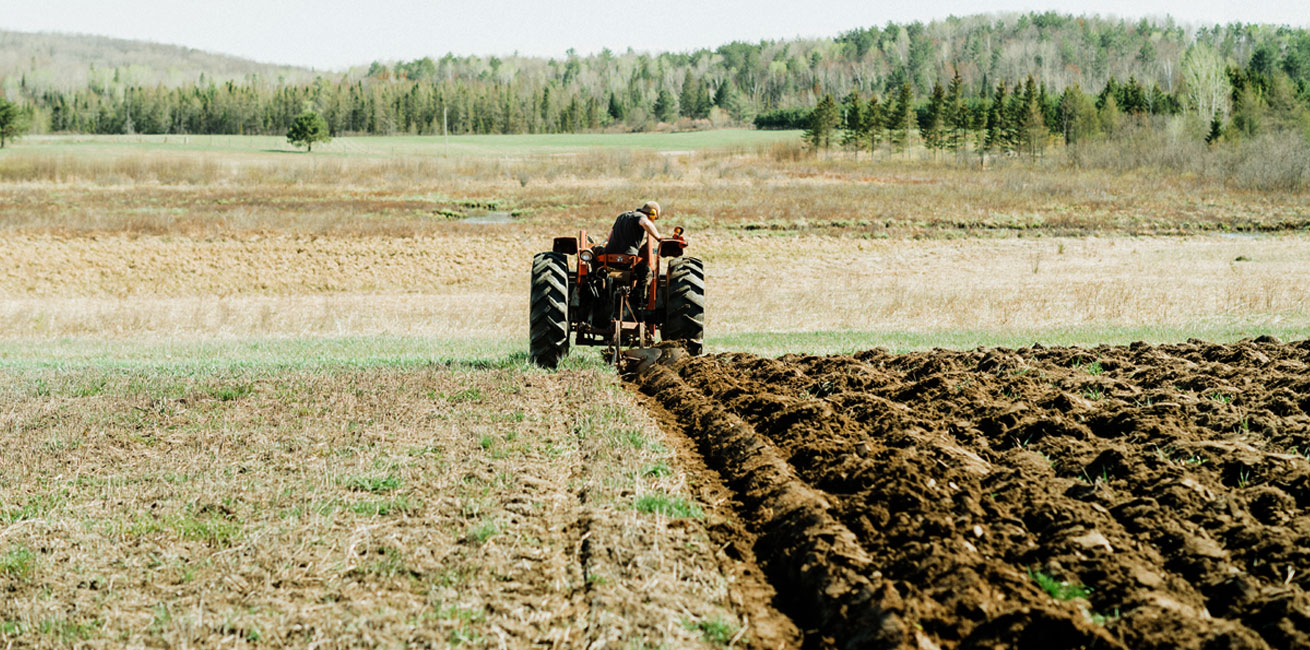
#5 Organic Methods Go Beyond the Farm
Organic is about more than avoiding toxins and building soil health.
After organic herbs are grown and harvested, they have a long journey ahead of them before they reach the store shelf. This is why organic methods also include preparing, handling, packaging and transporting herbs. Organic herbs are truly ‘seed to shelf’.
At St. Francis Herb Farm, we’ve been strongly committed to organic principles from the very beginning. At the very forefront of the Canadian organic certification movement, our farm was certified in the early 1990s. Today, we are the only Canadian company that provides certified organic tinctures.
We’re obsessed with producing the highest quality medicinal herbs for you and your family, free from damaging toxins and GMOs. Organic farming methods use 45% less energy and release 40% fewer carbon emissions than conventional farming, in addition to increasing biodiversity and keeping chemicals out of soil and waterways. Sure, organic costs a bit more. But ensuring the health of you and our planet? We think its well worth it.
Organic farming ensures that only the highest quality herbs make into our award-winning formulations like Deep Immune.
Want to learn more about our approach? Explore the three pillars of our Holistic Herb Approach HERE, or learn more about life on the farm HERE.
“Organic agriculture is a production system that sustains the health of soils, ecosystems and people. It relies on ecological processes, biodiversity and cycles adapted to local conditions, rather than the use of inputs with adverse effects. Organic agriculture combines tradition, innovation and science to benefit the shared environment and promote fair relationships and a good quality of life for all involved…”
International Federation of Organic Agriculture Movements (IFOAM)
References available upon request.
